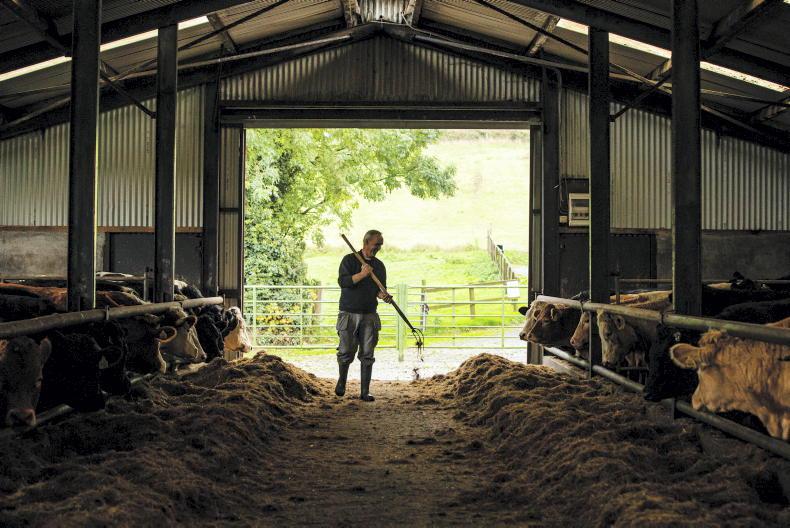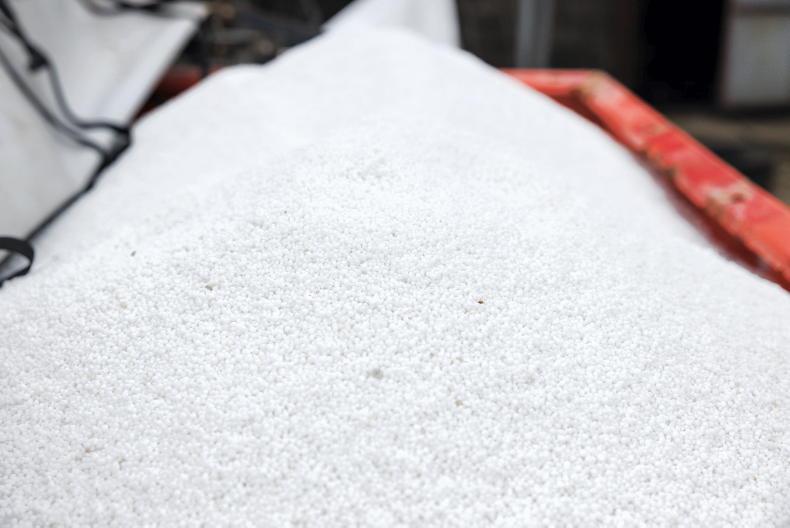Geraldine Dolan owns and operates Poppyfields Café in Athone, Co Westmeath. The café offers all-day breakfasts, homemade cakes, breads and scones and enjoys a loyal local following. The Café is open since 2006 and employs 11 members of staff.
Geraldine was shocked when she opened a recent electricity bill and saw it was nearly €10,000.
“Up to that stage, a regular bill was a maximum of €3,000,” she tells Irish Country Living. “To get one for €9,800 – you think, ‘That can’t be right.’ I mean, I genuinely thought there must have been a mistake.”
No mistake
But it was no mistake, and Geraldine’s isn’t the only hospitality business suffering due to a drastic increase in operating costs. In recent weeks, Michelin Star Galway restaurant Loam announced it was closing for the winter. Down the road, Chef JP McMahon announced his Galway restaurant, Tartare, would close permanently. On 1 September, the manager of the Celtic Ross Hotel in west Cork tweeted that their July 2021 electricity bill was €8,324 – and in July 2022 it was €18,262.
Rural hospitality businesses are being hit with a massive increase in the cost of overheads like gas, rent and electricity. Geraldine received this electricity bill in August. What will it be when the next gas and electricity increases (26.7% and 36.5% respectively) occur on 1 October?
“The cost of food has gone up, as well,” she laments. “When it comes to increasing our prices [to help deal with increasing costs], you can only go up a little bit. Hopefully the Government will do something for business. The Green Party has some great ideas but you can’t switch off [fossil fuels] until you have enough of the alternative. My landlord is a nice guy and doesn’t mind what I do, so I’m going to get solar panels – but you need planning for that and it’s not going to happen too quickly.”
Things are difficult right now but Geraldine says she has a plan and still feels hopeful for the future.
“Because of experience – having been in the business for so many years and seeing recessions and bad times – you can adapt and move to whatever you have to do to save your business and save jobs.”
Most rural hospitality businesses, however, are feeling serious pressure to make ends meet in the face of an uncertain future.
Proof in numbers
As if we needed additional confirmation of the struggles small hospitality businesses are currently facing, several sources – including a recent report commissioned by Drinks Industry Group of Ireland – indicate electricity prices for Irish businesses are 60% higher than the EU average. It’s believed that not being connected to the European grid and not having access to nuclear power, as other European countries do, are two significant reasons for this.
The report, Estimation of Costs of Doing Business in the Hospitality Sector: 2022 and 2023, was researched and authored by Dublin City University (DCU) Associate Professor Emeritus and economist Dr Anthony Foley.
Anthony tells Irish Country Living he used 2019 as the baseline for the study as it could be considered “the last normal year before COVID-19”.
He says the results of the study have made for dismal reading for most hospitality businesses, noting that hotels fared slightly better in past months than restaurants or pubs.
“They have all faced cost increases, but as the demand for accommodation is pretty good, hotel revenue went up by 15% while restaurants’ revenue only went up by 9.5%,” he explains. “That was up to July (2022). If we think ahead for the rest of the year, the bad news gets worse as interest rates are rising. The effect will be that every 1% increase in interest will be an extra €50m cost to the hospitality sector [in interest payments].”
Hotels fared better in recent months, but according to survey results released on 23 September from the Irish Hotels Federation, the coming winter is looking worryingly grim amid soaring operation costs and low occupancy projections.
Anthony says all of this is leading to a strained ongoing situation as no one is expecting energy prices to stabilise over the next 12 months.
“And the possibility of businesses charging higher prices is also reduced by the weaker current economic situation,” he adds.
Effects on tourism
In rural Ireland, where hospitality businesses are heavily dependent on tourism, increasing prices will have negative effects – not just on the business itself, but possibly on the perception of those visiting. Anthony says a reduction in rural hospitality services is also an ongoing concern.
“After COVID, lots of rural businesses kept their reduced offerings (closed on certain days, only offering lunch service, etc) and now we’ll likely see cutbacks on night-time activity (with increased electricity costs). The worrying thing is, there’s no guarantee it’s temporary.”
There is no doubt this is a scary time to be a business owner. Anthony, however, ends on a more positive note, saying that these are problems we can eventually mitigate and overcome as renewable energy sources become more widely available.
“This is happening right now because we were unprepared,” he says, “but it can – and will have to – get better.”
Minister of State at the Department of Enterprise, Trade and Employment, Damien English TD, tells Irish Country Living the Government has a proven track record in supporting enterprise (as we saw during the COVID-19 pandemic) and will continue to work to help small businesses survive the winter.
“I am really conscious that many small businesses across the country are facing into a winter of uncertainty with rising costs, especially with increases in energy prices and other inputs,” he says. “My Department is working on new proposals to help businesses with rapidly rising energy prices, while additional measures are being actively explored at a European level to tackle the costs of energy to households and businesses.”
Minister English says his Department will also work on raising awareness around energy efficiency and will help Irish businesses reduce the amount of energy they use by improving the uptake of the 20 different schemes already in place for business.
“Already, businesses can complete the Climatetoolkit4business (available on the Department’s website) to assess their carbon emissions and identify what supports they are eligible for,” he says. “A full list of Government grants, including SEAI’s Energy Audit for SMEs, SEAI’s Accelerated Capital Allowance and the Leos’ Green for Micro programme, in addition to vouchers and training available, can also be accessed on my Department’s website (enterprise.gov.ie).”
Read more
Rural Ireland's seniors at high risk for experiencing energy poverty this winter
What lies ahead for rural Ireland with energy price increases?
Geraldine Dolan owns and operates Poppyfields Café in Athone, Co Westmeath. The café offers all-day breakfasts, homemade cakes, breads and scones and enjoys a loyal local following. The Café is open since 2006 and employs 11 members of staff.
Geraldine was shocked when she opened a recent electricity bill and saw it was nearly €10,000.
“Up to that stage, a regular bill was a maximum of €3,000,” she tells Irish Country Living. “To get one for €9,800 – you think, ‘That can’t be right.’ I mean, I genuinely thought there must have been a mistake.”
No mistake
But it was no mistake, and Geraldine’s isn’t the only hospitality business suffering due to a drastic increase in operating costs. In recent weeks, Michelin Star Galway restaurant Loam announced it was closing for the winter. Down the road, Chef JP McMahon announced his Galway restaurant, Tartare, would close permanently. On 1 September, the manager of the Celtic Ross Hotel in west Cork tweeted that their July 2021 electricity bill was €8,324 – and in July 2022 it was €18,262.
Rural hospitality businesses are being hit with a massive increase in the cost of overheads like gas, rent and electricity. Geraldine received this electricity bill in August. What will it be when the next gas and electricity increases (26.7% and 36.5% respectively) occur on 1 October?
“The cost of food has gone up, as well,” she laments. “When it comes to increasing our prices [to help deal with increasing costs], you can only go up a little bit. Hopefully the Government will do something for business. The Green Party has some great ideas but you can’t switch off [fossil fuels] until you have enough of the alternative. My landlord is a nice guy and doesn’t mind what I do, so I’m going to get solar panels – but you need planning for that and it’s not going to happen too quickly.”
Things are difficult right now but Geraldine says she has a plan and still feels hopeful for the future.
“Because of experience – having been in the business for so many years and seeing recessions and bad times – you can adapt and move to whatever you have to do to save your business and save jobs.”
Most rural hospitality businesses, however, are feeling serious pressure to make ends meet in the face of an uncertain future.
Proof in numbers
As if we needed additional confirmation of the struggles small hospitality businesses are currently facing, several sources – including a recent report commissioned by Drinks Industry Group of Ireland – indicate electricity prices for Irish businesses are 60% higher than the EU average. It’s believed that not being connected to the European grid and not having access to nuclear power, as other European countries do, are two significant reasons for this.
The report, Estimation of Costs of Doing Business in the Hospitality Sector: 2022 and 2023, was researched and authored by Dublin City University (DCU) Associate Professor Emeritus and economist Dr Anthony Foley.
Anthony tells Irish Country Living he used 2019 as the baseline for the study as it could be considered “the last normal year before COVID-19”.
He says the results of the study have made for dismal reading for most hospitality businesses, noting that hotels fared slightly better in past months than restaurants or pubs.
“They have all faced cost increases, but as the demand for accommodation is pretty good, hotel revenue went up by 15% while restaurants’ revenue only went up by 9.5%,” he explains. “That was up to July (2022). If we think ahead for the rest of the year, the bad news gets worse as interest rates are rising. The effect will be that every 1% increase in interest will be an extra €50m cost to the hospitality sector [in interest payments].”
Hotels fared better in recent months, but according to survey results released on 23 September from the Irish Hotels Federation, the coming winter is looking worryingly grim amid soaring operation costs and low occupancy projections.
Anthony says all of this is leading to a strained ongoing situation as no one is expecting energy prices to stabilise over the next 12 months.
“And the possibility of businesses charging higher prices is also reduced by the weaker current economic situation,” he adds.
Effects on tourism
In rural Ireland, where hospitality businesses are heavily dependent on tourism, increasing prices will have negative effects – not just on the business itself, but possibly on the perception of those visiting. Anthony says a reduction in rural hospitality services is also an ongoing concern.
“After COVID, lots of rural businesses kept their reduced offerings (closed on certain days, only offering lunch service, etc) and now we’ll likely see cutbacks on night-time activity (with increased electricity costs). The worrying thing is, there’s no guarantee it’s temporary.”
There is no doubt this is a scary time to be a business owner. Anthony, however, ends on a more positive note, saying that these are problems we can eventually mitigate and overcome as renewable energy sources become more widely available.
“This is happening right now because we were unprepared,” he says, “but it can – and will have to – get better.”
Minister of State at the Department of Enterprise, Trade and Employment, Damien English TD, tells Irish Country Living the Government has a proven track record in supporting enterprise (as we saw during the COVID-19 pandemic) and will continue to work to help small businesses survive the winter.
“I am really conscious that many small businesses across the country are facing into a winter of uncertainty with rising costs, especially with increases in energy prices and other inputs,” he says. “My Department is working on new proposals to help businesses with rapidly rising energy prices, while additional measures are being actively explored at a European level to tackle the costs of energy to households and businesses.”
Minister English says his Department will also work on raising awareness around energy efficiency and will help Irish businesses reduce the amount of energy they use by improving the uptake of the 20 different schemes already in place for business.
“Already, businesses can complete the Climatetoolkit4business (available on the Department’s website) to assess their carbon emissions and identify what supports they are eligible for,” he says. “A full list of Government grants, including SEAI’s Energy Audit for SMEs, SEAI’s Accelerated Capital Allowance and the Leos’ Green for Micro programme, in addition to vouchers and training available, can also be accessed on my Department’s website (enterprise.gov.ie).”
Read more
Rural Ireland's seniors at high risk for experiencing energy poverty this winter
What lies ahead for rural Ireland with energy price increases?









SHARING OPTIONS